My Significant Other (2011)
Alpine, CA, U.S.A.
An Abendessen / performance
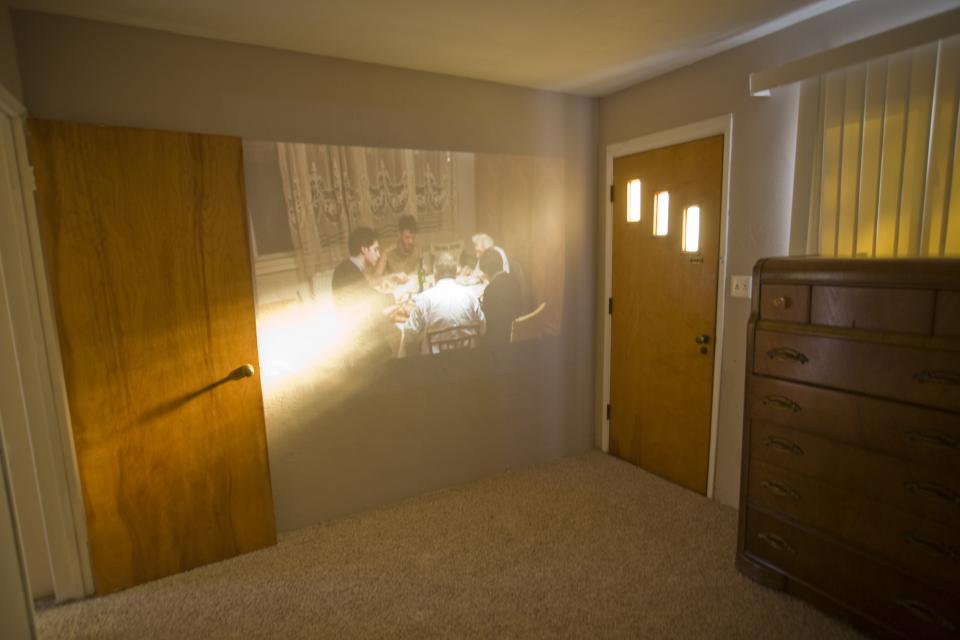
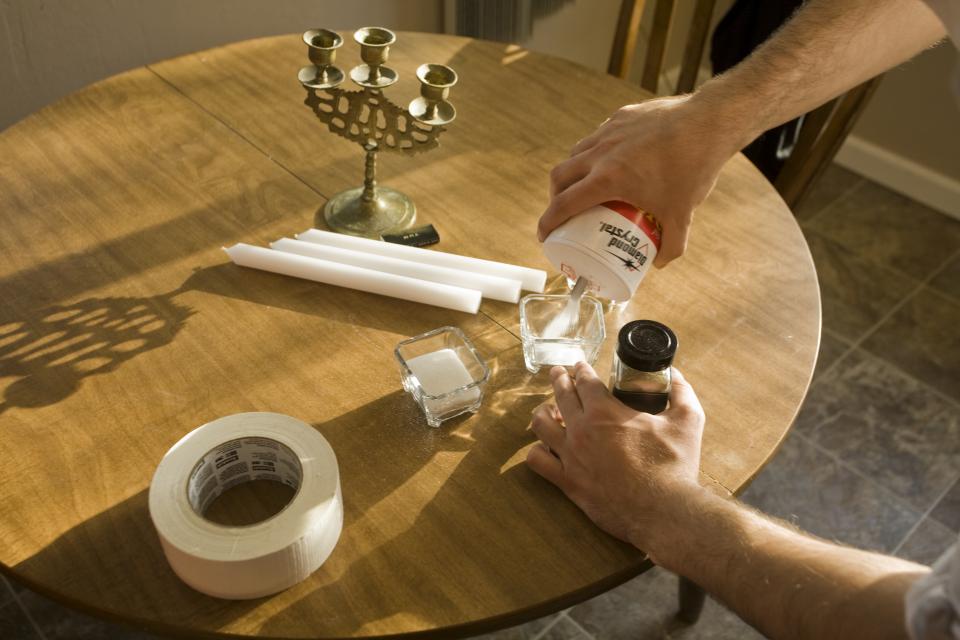
You were able to sit down at the table with each person and fully be present with them and sing to them. What if we all got to do that before we … actually die?
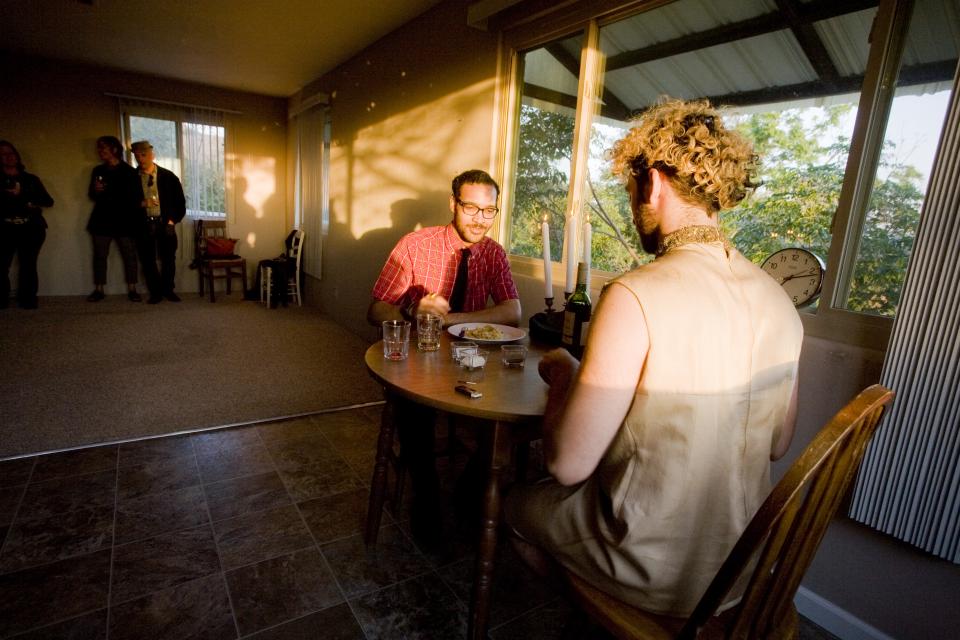
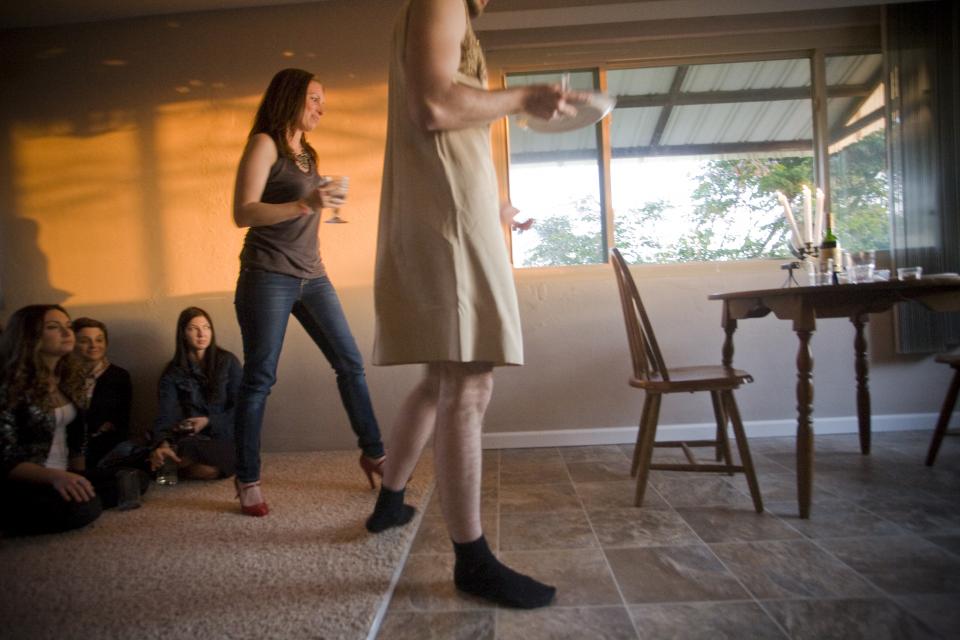
You’ll find a place full of memories, longing and a lot of laughter. Can you smell the food already?
«Robert Steinberger is an emerging artist who knows how to queer domesticity and tackle ‹the body› with elan beyond his years. Jennings lent Steinberger her home for his thesis project, My Significant Other, a performance / Abendessen in which he both fed and sang to his guests while clad in his grandmother’s clothes. He managed to down over 10 plates of a delicious Hungarian dish without getting sick, all the while staying in character as a love-sick male vying for the attentions of his audience with song and flirtatious conversation. The performance included video installations that meshed both formally and conceptually with the spirit of the home and its decor.»
-Glenna Jennings
In May 2013, two years after the actual performance, I met up with Juliana Snapper and Ash Eliza Smith. Juliana Snapper was my voice coach, who helped me prepare my performance. Ash Eliza Smith documented the performance on video the night it took place. This conversation shall serve as further documentation. Here are some excerpts:
R: That was one of the unexpected effects … the happening also became this ritual to wrap up my time here [in California]. Because I probably saw most of the people that I was close with.
A: Right, it was almost like a death of sorts.
R: Yeah!
A: Or if you imagine, we could all pick how we would want to die … Not that it was a death– I mean it's a death in the sense of ending a life chapter. Killing that off and rebirthing in Switzerland. I never actually thought of it like that, but just the notion of how you were able to sit down at the table with each person and fully be present with them and sing to them. You know … what if we all got to do that before we actually really die?
R: Yes, that's beautiful. It was like a death ritual in that sense.
A: And everyone had to wait. That was like the nature of the performance. No one dare, take off! You know?
J: That's well put together, if people don't dare take off ...
A: I am sure you all have thought about your funeral … I envisioned as a kid, «oh, what will my funeral be like», or ... who would come or who wouldn't come and what would I want people to do at my funeral?
R: Which is a great association, because I was wearing the dress of my grandmother, who passed away. It was a really strong intuition of mine, when I first put my grandmother’s dresses on, when I was in Hungary with my family. You know, it was only six months after she passed away and …
A: Wow, see! I didn't even know that.
J: I didn't realize it was so recent either.
A: And also, hadn't Glenna [Jennings], whose house it was at, hadn't there also been some kind of closure with the house, where the performance actually happened? Hasn't she just moved all of her parents' stuff out or something ... ?
R: Well yeah … she was basically just deciding to sell the house, and then this performance actually made her not sell it. For her, my performance was a sort of exorcism of the house, because she had strong memories of her childhood there, of her father there, and I think she definitely felt that our families' stories were kind of convoluted or ... intersected through the Abendessen. And now she is renting it out. She didn't want to sell it anymore.
J: That's amazing that it could be a funeral and an exorcism.
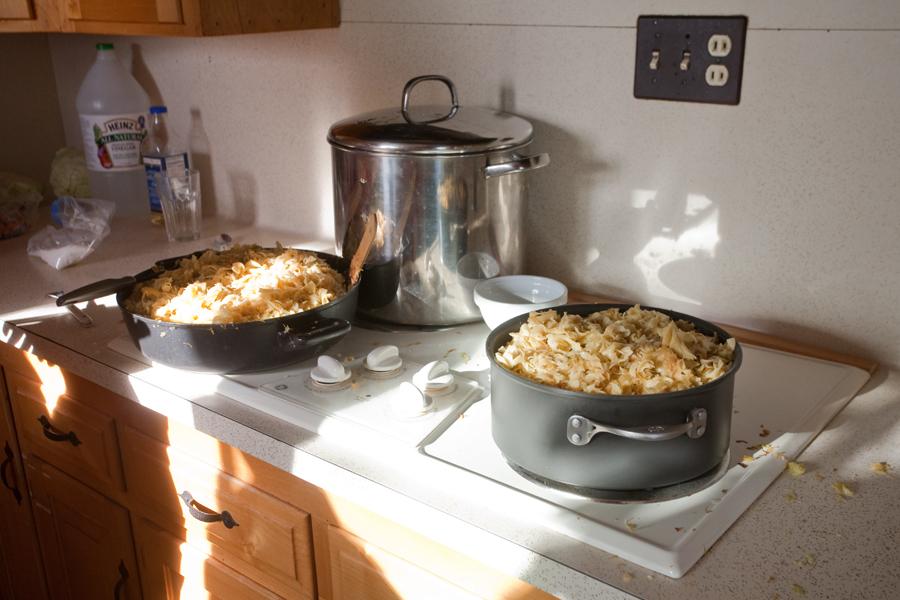
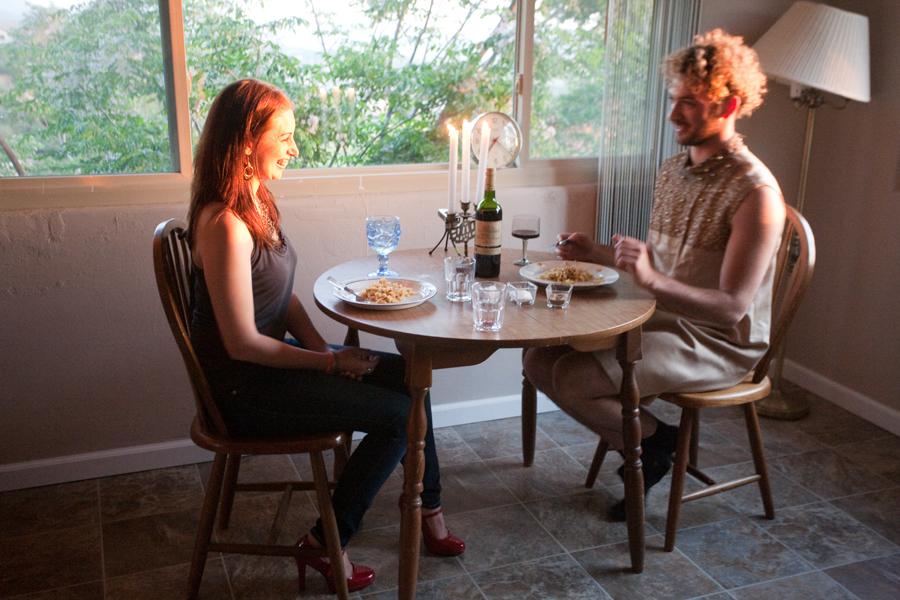
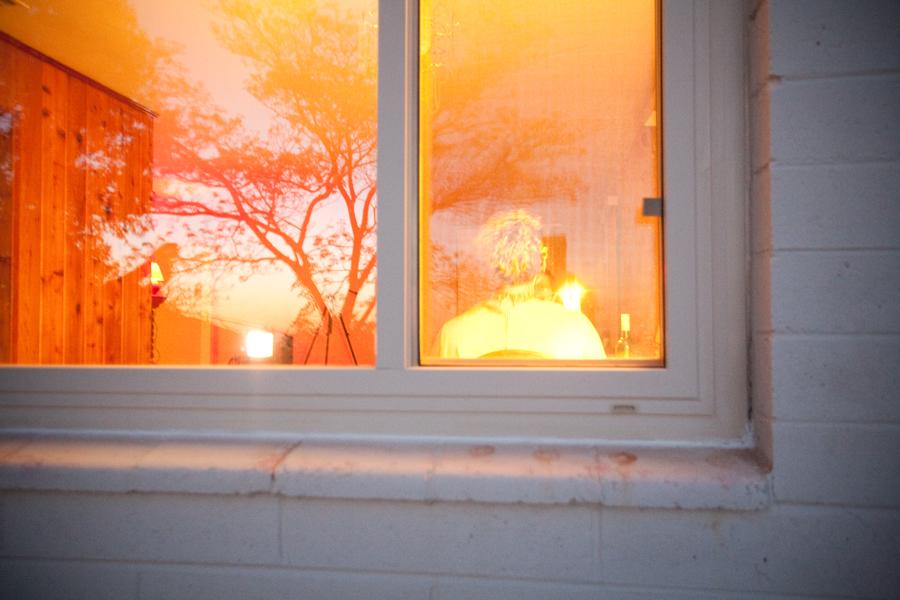
R: It was just difficult emotionally to go back to it. I felt like I didn’t have the distance to it to be able to work with the documentation. As I said, one of the unexpected turns of the Abendessen was that I had a lot of conversations about me leaving. It became very emotional and through that truly transformative, because I had these deep connections with the people that I ate with and talked to and sang to. Now I decided to talk about it [the performance] with you, because I felt like I couldn’t represent it in any other form. Because there was this intangible factor … I always had the intuition when to start singing, it wasn’t planned. I wanted to hit a certain depth in the conversation and then I started singing. When I started singing, I could see that it really touched the other person— there was actually a change in their demeanour … Some even started to cry. It was just really intense. The experience was so enriching in itself, but also so exhausting … It almost felt trivial to deal with documentation after that. It almost feels trivial…
J: Yeah … like the sex tape …
[Laughter]
A: Yeah, it’s funny because just listening to you now talking about it, you just got me there. I remember it was— and I don’t use this word a lot, but it was sacred. You waited until the moment, that unspeakable moment you have with someone, where there is just … you know, darts come out of your ear and your eyes, and then you just know and you would project. Just another thing, thinking about channelling again, and the idea of hosting … That was really truly your ability to stay there as the host, as the medium, whatever you want to call it, when someone was actually crying in front of you. That you did that time and time again.
J: Yeah, I am really interested in how you were able to stay present. How long did the one-on-one dinner go, how long were you doing that, or how many people did you eat with?
R: I think it was about ten people and all of them together took about two hours … I was surprised myself, that … I mean, there was the possibility of me getting nauseous and I thought that might happen. Because I ate a full plate every time.
J: Wow!
A: Totally! I forgot about that. In a woman’s dress, sitting there, you ate the full plate.
R: I mean, I thought, it would have been fine, if I had to get up and throw up. It would have still made sense actually. But it was so amazing— I had no, no feeling of nausea at all. I was neither full nor hungry, I was just so focused. I was in a ritualistic cycle in a way, because I did it over and over. And it was the most important to me, it was the heart and soul for me of the Abendessen, that I was truly present with every person I was eating with. And that I would hit that spot with everyone that I was eating with. And … so I really took the time as well. That was one thing: I didn’t rush myself at all.
Photos © Glenna Jennings 2011